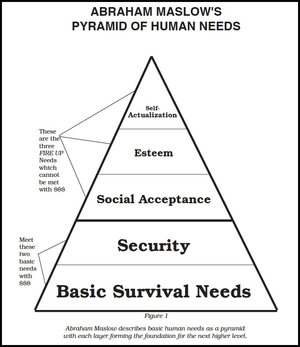It’s important to discover the causes of low employee morale at your company, because it’s probably costing your company a lot of money. This article will explain how to rate employee morale in 7 key areas.
There are many businesses that are plagued by low morale, and they don’t know what is causing it or what to do about it. At seminars that we have held, participants included the following causes of poor morale. Do some of these sound like they are coming from your company?
Employees Reveal the Causes of Poor Morale
- Not being appreciated – management doesn’t seem to care
- Bad management
- Budget cuts
- Customer stress
- Same routine – work is boring or repetitive
- Too much work and not enough time to do it – always seem to be behind
- Lack of information about their job or company
- Lack of friendliness between employees
- Lack of respect
- Office politics, gossip, and bickering
- Negative attitude
- A dull or cluttered work environment
- Not enough fun and laughter
As you can see, there are many different types of sources of poor employee morale. This list shows that, when addressing low morale, it is important to look at several areas, rather than focus on one, as there could be several different causes of low morale in your workplace. But first it’s good to realize how low employee morale is affecting your company.
What Are the Results of Poor Morale?
- Not doing the work well – mistakes and low productivity
- Negative attitude
- Stress
- Frustration and depression spreads
- Apathy – an “I don’t care” attitude
- Employees are not willing to go the extra mile
- No team approach
- People call in sick
- People quit
- The company loses a lot of $$$.
Poor employee morale effects everybody involved with the company. Employees give less effort and do not work together as well, leading to poor product quality or customer service, which can cause the company to lose customers. This has a negative effect on management’s goals and effectiveness, and can end up costing the company a lot of money.
The 7 Key Areas of Employee Morale
- Employee Relationships – How you, your co-workers, and management get along. Employee relationships are so important because employees who enjoy each other are more cooperative.
- Company Communication – How well management keeps you informed. There is nothing more stressful for employees than trying to guess what management is going to do. It’s important to learn how well your employees think you do at company communication.
- Appreciation & Recognition – How appreciated your employees feel on a daily basis. Studies have shown that employee recognition is more important to employees than money when it comes to job satisfaction.
- Employee Input – How your company values your employees creative ideas. Everybody has a different perspective on things, so your employees may come up with creative ways to solve problems or work more efficiently. If your employees think you are willing to listen and value their ideas, they will share them with you.
- Fulfillment – How meaningful the job is to your employees. There are ways that you can make even tedious work meaningful to your employees. Learn how well you are doing that.
- Personal & Professional Growth – Opportunities to develop your employees’ careers and personal qualities. Where does your company stand on professional development?
- Employee Spirit – How much positive energy and enthusiasm is generated at your workplace. Work can be depleting. How well do your employees think you are doing at re-energizing your staff?
I invite you to get our free Employee Morale Assessment to pinpoint what areas of employee morale need improvement. Simply print it out and distribute to your employees.
What You Can Do About It
Get to understand the basic concept of boosting morale and the many different ways you can attack the problem at your company. Then take action by implementing some of the many possible morale boosting activities.
The Basic Concept of Boosting Morale Is Based on Abraham Maslow’s Hierarchy of Human Needs
Abraham Maslow is known as the father of self-actualization. His discovery that people can develop more of their potential, are what form the basis for boosting employee morale. 
Each level of the pyramid forms the foundation for filling the needs of the next higher level.
The good news is that boosting employee morale doesn’t require a lot of money. However, it does require some time and effort. The choice of how much money and time you wish to invest is up to you.
I think you will find it’s a lot more fun and productive to invest some time in improving morale, than to invest that time into constantly dousing the fires of negativity.
It’s not just about having an annual awards ceremony, an occasional motivational speaker, or giving a pay raise. It’s not about changing the structure of your company so that you can raise morale. It’s about adding morale boosting activities into the structure your company already has.
Even if you incorporate only a few employee morale boosters, they can make a difference in the morale at your company. This will lead to happier, more productive employees and money saved for your company.
